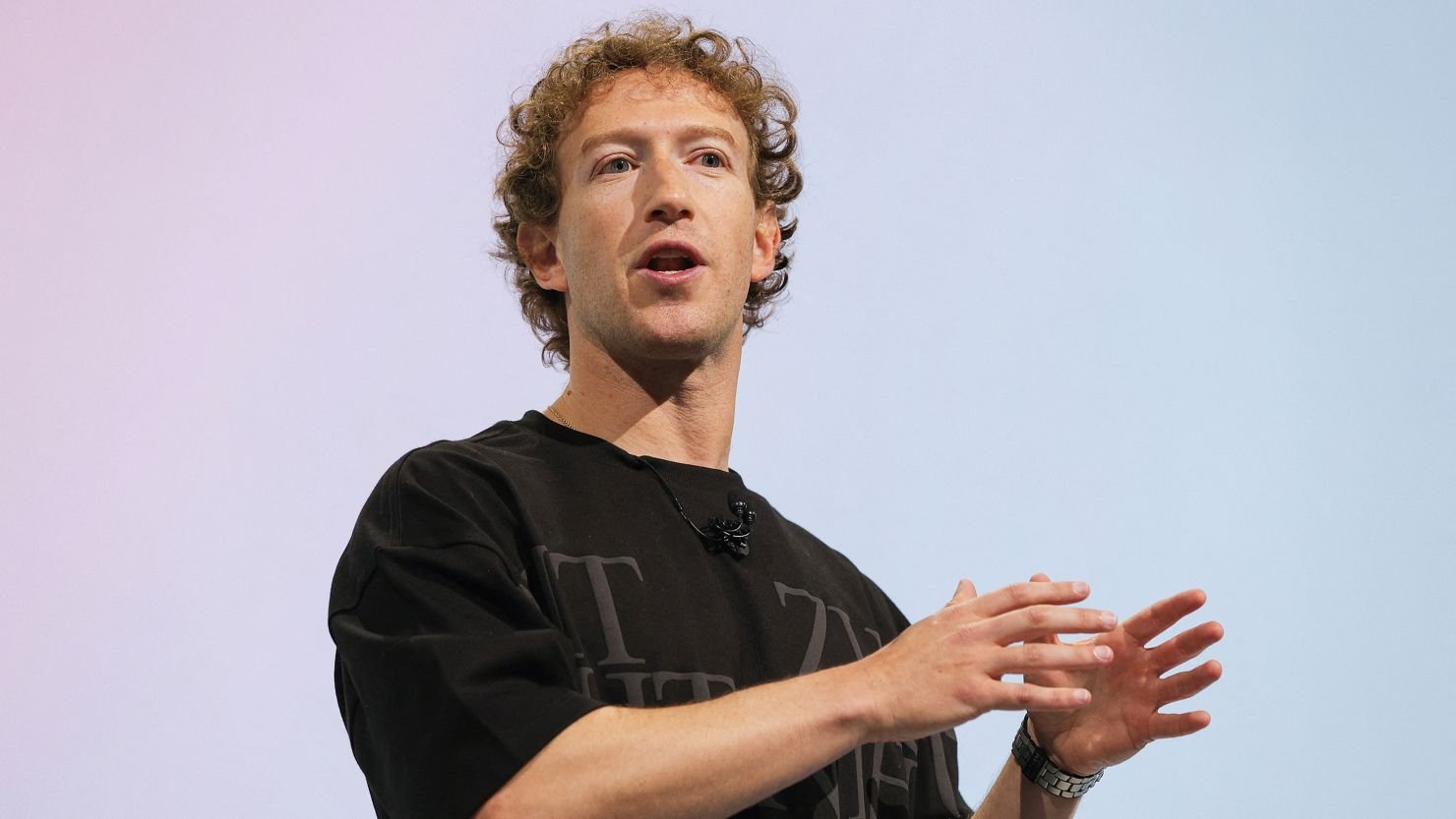Mark Zuckerberg Turns Away from Politics: A Shift from Activism to Neutrality
Just over a decade ago, Zuckerberg was vocal about his political views, passionately supporting issues like immigration, social justice, and inequality. He launched philanthropic foundations and donated vast amounts of money to support his political goals, positioning himself as an advocate for change.

Now in his 40s, Zuckerberg’s approach has dramatically shifted. His experiences with political controversies, particularly in Washington, have made him cynical about politics. Both Democrats and Republicans criticized Facebook, accusing it of allowing Russian interference in elections and of either censoring or enabling political speech. As a result, Zuckerberg has become increasingly disillusioned with the political world.
According to his close circle of friends, advisers, and colleagues, Zuckerberg now prefers to avoid politics as much as possible. He has reduced his involvement in programs at his philanthropic organization, the Chan Zuckerberg Initiative (CZI), that might be seen as partisan. Inside Meta, he has taken steps to reduce employee activism around sensitive political issues such as abortion and racial justice.
The Fallout of Political Involvement
Zuckerberg’s involvement in politics was not always controversial. In 2013, he co-founded the advocacy group Fwd.US, which aimed to provide a path to citizenship for undocumented immigrants. Later, he and his wife, Dr. Priscilla Chan, founded the Chan Zuckerberg Initiative, focusing on ambitious causes like reducing incarceration and legalizing drugs. They even wrote a heartfelt letter to their newborn daughter, pledging to work toward a world without poverty or hunger.
However, the tide began to turn in 2016 when Facebook was accused of allowing Russian interference in the U.S. election. Zuckerberg and his company became embroiled in political scrutiny, and both parties turned against Meta. It became clear to Zuckerberg that his efforts to contribute to political causes were backfiring, attracting more negative attention than positive change.
From Progressivism to Neutrality
Zuckerberg’s disillusionment deepened after incidents like the 2020 protests following George Floyd’s death. His refusal to moderate comments from then-President Donald Trump led to criticism from his employees at CZI, some of whom even called for his resignation. This led Zuckerberg to rethink his involvement in political causes, scaling back the work of CZI’s Justice and Opportunity division. By 2021, he decided to stop the group’s political efforts altogether, shifting its focus to bipartisan organizations.
Zuckerberg’s disconnection from politics extended to his dealings with the U.S. government. He expressed regret in a letter to Congress, explaining that he had felt pressured by the Biden administration to censor more COVID-19 content than he was comfortable with. In his public remarks, he made it clear that he regretted some of his past political activities and had no intention of repeating them.
Behind the Scenes
Though Zuckerberg is publicly stepping away from politics, privately he has maintained some connections. He has spoken twice on the phone with former President Donald Trump, which some see as an attempt to mend a strained relationship. He has also made efforts to rebuild relationships with Republican leaders, even hiring a Republican strategist to help repair his image with conservative circles.
At the same time, Zuckerberg has distanced himself from liberal causes, refusing to let CZI focus on politically charged issues such as abortion access after the Supreme Court overturned Roe v. Wade. Dr. Chan reiterated this stance in a memo, clarifying that their focus would remain on science, education, and community work.
The Broader Silicon Valley Shift
Zuckerberg’s political evolution mirrors a larger trend in Silicon Valley. Tech leaders, frustrated by the increasingly contentious political landscape, are choosing neutrality. While some, like Elon Musk, have aligned themselves with conservative politics, others, like Zuckerberg, are retreating from political engagement altogether. His libertarian views now emphasize free markets and globalism, while steering clear of far-left progressivism.
Analysis: Zuckerberg’s New Path and Its Implications
Zuckerberg’s journey from a vocal political figure to someone eager to avoid politics reflects a broader shift in Silicon Valley’s relationship with the U.S. government. His early involvement in progressive causes, like immigration reform and social justice, aligned with the liberal ideals that dominate the tech world. However, the political backlash he and Meta faced, especially after the 2016 election, marked a turning point.
One of the key factors driving Zuckerberg’s retreat from politics is the dual pressure from both political parties. On one hand, liberals criticized Facebook for not doing enough to curb hate speech and misinformation. On the other hand, conservatives accused the platform of censorship, especially during the pandemic and the 2020 election. It became clear to Zuckerberg that engaging in politics would only continue to put Meta under a microscope.
Furthermore, Zuckerberg’s personal values have shifted. Once seen as a progressive voice, he now identifies more with libertarian or “classical liberal” ideas. These beliefs emphasize free-market principles and limited government intervention, and while he still supports social justice causes, he stops short of endorsing more radical progressive movements.
From a business perspective, Zuckerberg’s political shift makes sense. Meta has faced growing scrutiny, and avoiding politics helps reduce risks. By stepping back, Zuckerberg is attempting to protect Meta from further political entanglements and rebuild its reputation.
Ultimately, Zuckerberg’s retreat from politics signals a larger trend in the tech industry. As political issues become more polarizing, tech leaders may choose to focus on business rather than becoming involved in activism. For Zuckerberg, this decision may help Meta navigate a politically charged environment, but it raises questions about the role of tech giants in shaping public policy.
In his own words, Zuckerberg believes it will take years to rebuild Meta’s reputation, but he hopes that by stepping away from politics, both he and his company can eventually recover. However, given the complex intersection of politics, technology, and public discourse, it remains to be seen whether Zuckerberg’s retreat will truly shield Meta from future political challenges.
